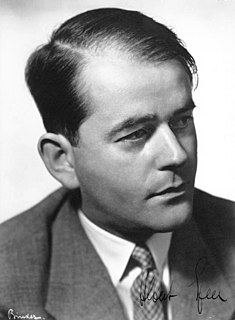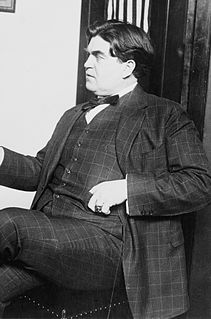A Quote by Albert Speer
Temporarily in 1934 I became a department head in the German Labor Front and dealt with the improvement of labor conditions in German factories. Then I was in charge of public works on the staff of Hess. I gave up both these activities in 1941.
Quote Topics
Related Quotes
[A.J. Muste] was from Michigan and he grew up in the Dutch Reform Church there, which is a fairly strict church. He later came to New York. He was the minister of a labor temple in the - on the East Side. Then he founded, to my knowledge, the first, maybe the only, labor school; that is, Cornell has a labor department and other schools. But this was a school for - entirely for labor organizers, and he was the - the chairman.
The first Friday of every month is what we call Numbers Day - it's the day that the Bureau of Labor Statistics releases the monthly jobs report. We have a ritual at the Labor Department - at 8 A.M., we gather around a table in my office, and the commissioner of labor statistics briefs me and the department's senior leadership on the numbers.
Labor, like Israel, has many sorrows. Its women weep for their fallen and they lament for the future of the children of the race. It ill behooves one who has supped at labor's table and who has been sheltered in labor's house to curse with equal fervor and fine impartiality both labor and its adversaries when they become locked in deadly embrace.
Since it is to the advantage of the wage-payer to pay as little as possible, even well-paid labor will have no more than what is regarded in a particular society as the reasonable level of subsistence. The lower ranks of labor will commonly have less, and if public relief were afforded even up to the wage-level of the lowest ranks of labor, that relief would compete in the labor market; check or dry up the supply of wage-labor. It would tend to render the performance of work by the wage-earner redundant.
What about precarious labor? It's actually not the most efficient form of labor at all. They were much more efficient when they had loyalty to their workers and people were allowed to be creative and contribute - you know that what precarious labor does is that it's the best weapon ever made to depoliticize labor. They're always putting the political in front of the economic.
Labor, being itself a commodity, is measured as such by the labor time needed to produce the labor-commodity. And what is needed to produce this labor-commodity? Just enough labor time to produce the objects indispensable to the constant maintenance of labor, that is, to keep the worker alive and in a condition to propagate his race. The natural price of labor is no other than the wage minimum.
My grandmother was German. She didn't teach any of her children German. She really wanted them to be American. And now, she's since passed away, I get so frustrated sometimes. I'm like, "Oh, Oma, why didn't you teach your kids German?" My dad would have spoken German to me from birth, and I would have spoken German.







































